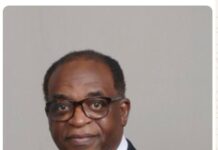 The 2015 General Elections will hold in Nigeria in February, 2015, less than two months away. The 2015 general elections is unique in many ways. First and foremost, it promises to be a fierce contest between the ruling Peoples Democratic Party (PDP) and the opposition All Progressives Congress (APC). In the past elections especially in 1999, 2003, 2007 and 2011, the outcome of the election can be correctly predicted by majority of citizens and many people knew that there was no real contest between the ruling party and the opposition parties. But in 2015, with the merger of some opposition parties into the APC, there is likely to be a fierce contest. Secondly, the context of 2011 is quite different from the context of 2015. In 2011, there was rising price of oil and a high demand for Nigerian oil. Towards the 2015 elections, the price of oil is falling and for the first time in recent history, the 2015 budget is lower than the previous years’ budget. In addition, before the 2011 elections, there was no freedom of information bill. Towards, the 2015 elections, the freedom of information bill is in force and many Nigerians now have access to real time information on line. Consequently, many more Nigerians are demanding for improved public services which necessitates the need for the political parties and candidates seeking in election in 2015 to address issues of Public Administration Reform.
The 2015 General Elections will hold in Nigeria in February, 2015, less than two months away. The 2015 general elections is unique in many ways. First and foremost, it promises to be a fierce contest between the ruling Peoples Democratic Party (PDP) and the opposition All Progressives Congress (APC). In the past elections especially in 1999, 2003, 2007 and 2011, the outcome of the election can be correctly predicted by majority of citizens and many people knew that there was no real contest between the ruling party and the opposition parties. But in 2015, with the merger of some opposition parties into the APC, there is likely to be a fierce contest. Secondly, the context of 2011 is quite different from the context of 2015. In 2011, there was rising price of oil and a high demand for Nigerian oil. Towards the 2015 elections, the price of oil is falling and for the first time in recent history, the 2015 budget is lower than the previous years’ budget. In addition, before the 2011 elections, there was no freedom of information bill. Towards, the 2015 elections, the freedom of information bill is in force and many Nigerians now have access to real time information on line. Consequently, many more Nigerians are demanding for improved public services which necessitates the need for the political parties and candidates seeking in election in 2015 to address issues of Public Administration Reform.
Modern democracies understand public administration as service to citizens and the public. It is through public administration that government can manage its activities effectively and efficiently. Public administration plays a vital role in delivering and distributing public services across a country. Public Administration is very important in a developing country like Nigeria with oil resources and huge problems of managing the resources.
The major function of public administration is to provide services including health, education, transport, waste disposal, issuing licenses, providing information, providing internal security, regulation and enforcement of legal duties. In addition, public administration helps to provide enabling environment for economic growth and prosperity for citizens as well as securing and strengthening democratic institutions, systems and mechanisms.
Public Administration is so important to society that citizens need to engage with it. But all over the world, there is the problem of bureaucracy/red tape, inefficiency and poor delivery of services with public administration. This is why most governments across the world are constantly re-inventing their public administration through reform.
In Nigeria, there are huge challenges with public administration. The cost of governance is very high with the federal government spending over 70 percent of its total budget on recurrent expenditure. There are huge challenges of policy planning and co-ordination. The structures and systems in the public sector are not delivering services efficiently and effectively to the citizens of Nigeria. There is a huge capacity gap in the public sector and the ministries, department and agencies are not working optimally. The budgetary process is marked with a lot of challenges and there is hardly any year when the budget has been passed in the first month of the year.
As we look to the 2015 general elections, the political parties and candidates need to tell the voters and citizens in Nigeria how they will address the challenges of public administration in Nigeria. They need to show concrete strategies and plans for improved policy and planning co-ordination, improved human resource management structures, systems and skills and improved budget transparency, consultation, oversight and credibility. The era where political parties and candidates make promises without concrete strategies and plans and answering the question of how should be stopped with the 2015 elections. Civil society organisations, workers unions, committed patriots and citizens have great roles to play for this to be realized. Political parties and candidates must he held to account before and after the 2015 general elections.
Dr. Otive Igbuzor ,Executive Director, African Centre for Leadership, Strategy & Development ,is a Pharmacist, Human Rights Activist, Policy Analyst, Development Expert and Strategist. He holds a doctorate degree in Public Administration.



